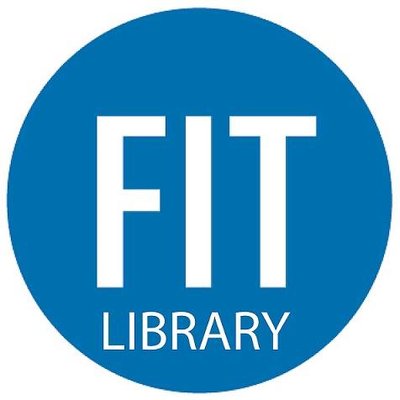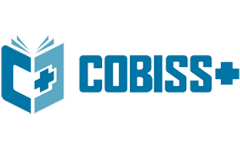Evaluation of physics books for middle school in Iraq in light of the topics of the International Physics Olympiad competitions
DOI:
https://doi.org/10.61841/cqej4b89Keywords:
physics, Olympiad CompetitionAbstract
The research mainly aims to identify the extent to which physics books in high school in Iraq meet the content standards of the International Physics Olympic Competition. In order to achieve the main aim of the research, the researcher limited the subjects of the competition to the descriptive analytical method, which based on the content analysis that has been used is considered to be a suitable way for the analysis of curricula and to collect the quantitative data. The analysis tool included subjects and a graduated scale consisting of three categories: the extent of the handling, the form of handling, and the level of handling. The research community consisted of all physics books in high schools in Iraq, which are 5 books spread over three grades which are established to be taught for the academic year (2019 \ 2018) reliability and validity evidence were gathered, and the frequencies and percentages were used as statistical means to determine the extent to which those subjects are approached . The research found a set of results, which are that the subjects of oscillation and waves, electromagnetic fields, and mechanics were more addressed than subjects of thermodynamics quantum physics and relativity. The form of handling was fairly acceptable as the percentage was (%) explicit and physics the level of subj(%) 50,was (%50) which is very low percentage. It is also recommended that it is important to pay attention to the quality and depth of information to suit the level of mental learner the study also suggested conducting similar study to evaluate mathematics. computer and chemistry curricula in light of the Olympic Competition held for each subjects.
Downloads
References
1. Al Faisal, Hanan Hussein Abdullah (2016): Evaluation of Physics Courses for the Secondary Level in Light of the International Physics Olympiad Competitions. Arab Studies in Education and Psychology, Issue Seventy-ninth, November.
2. Al-Zubaidi, Muhannad Abdul-Hassan Rahyo (2013): The extent to which the national standards for American scientific education are achieved In the content of physics books for middle school in Iraq, Journal of the College of Education for Girls for Human Sciences, Issue 13, Year Seven
3. Za'anin, Jamal Abed Rabbo. Muhammad Musa Shabat (2002): Development of Physics Curricula at the Secondary Level in Palestine for the Twenty-first Century, Journal of the Islamic University, Volume Ten, Number One.
4. Shehadeh, Zuhair Fayyad, Najm Bin (2013): Introduction to Olympic Physics Training Mechanics and the Mechanics of Solid Objects, I 1
5. To'eima , Dr. Ahmed Rushdie (2004): Analysis of content in the human sciences, Dar Arab Thought, Cairo,
6. Ali, Mohsen Abd. Saad Matar Abboud (2012): Contemporary Trends in Curriculum Building, Modern Book Foundation, First Edition, Lebanon.
7. The Physics Terminology Committee of the Arabic Language Academy (2009): The Lexicon of Physics, Arab Republic of Egypt, the Academy of the Arabic Language, Cairo.
8. A specialized committee in the Iraqi Ministry of Education (2018): Physics for the fifth grade, science, biological branch, General Directorate of Curriculum, eighth edition.
9. A specialized committee in the Iraqi Ministry of Education (2018): Physics for the sixth grade, science, biological branch, General Directorate of Curriculum, seventh edition.
10. Katut, Sahar Amin (2008): Encyclopedia of Scientific Definitions, Two Thousand Zia, Dar Tigris, Hashemite Kingdom of Jordan.
11. Mohammed, Dr. Qasim Aziz and others (2018): Physics, fourth grade science, the Iraqi Ministry of Education, the Directorate General of Curriculum, the ninth edition
12. Mohamed, Dr. Qasim Aziz, and others (2018): Physics for the fifth grade scientific branch applied, the Iraqi Ministry of Education, the General Directorate of Curriculum, Seventh Edition.
13. Muhammad, Dr. Qasim Aziz, and others (2018): Physics for the sixth grade, science and applied branch, Iraqi Ministry of Education, General Directorate of Curriculum, Sixth Edition.
14. Muslim, Dr. Mohsen Taher: :(2013) Evaluation of physics books for the secondary stage in the light of the overall quality standards, Journal of Qadisiyah in the educational literature and science, skin 12, No. 1
15. Al-Mashkour, Rashwan Jalil. Abbas Jawad Al-Rikabi: (2016) Analysis of the content of the books on chemistry and physics for the second grade intermediate in light of the requirements of the (timss) Journal of the College of Education for Girls for Human Sciences, Issue 18, Year 10.
16. Musa, Tahseen Omran: (2016) Analysis of the content of the physics textbook for the third intermediate grade in light of physical developments, Journal of the Center for the Studies of Kufa, Issue 40 Electronic references.
17. The official website of the International Physics Olympiad: http://ipho.phy.ntnu.edu.tw/syllabu.shtml
Downloads
Published
Issue
Section
License
Copyright (c) 2020 AUTHOR

This work is licensed under a Creative Commons Attribution 4.0 International License.
You are free to:
- Share — copy and redistribute the material in any medium or format for any purpose, even commercially.
- Adapt — remix, transform, and build upon the material for any purpose, even commercially.
- The licensor cannot revoke these freedoms as long as you follow the license terms.
Under the following terms:
- Attribution — You must give appropriate credit , provide a link to the license, and indicate if changes were made . You may do so in any reasonable manner, but not in any way that suggests the licensor endorses you or your use.
- No additional restrictions — You may not apply legal terms or technological measures that legally restrict others from doing anything the license permits.
Notices:
You do not have to comply with the license for elements of the material in the public domain or where your use is permitted by an applicable exception or limitation .
No warranties are given. The license may not give you all of the permissions necessary for your intended use. For example, other rights such as publicity, privacy, or moral rights may limit how you use the material.
















